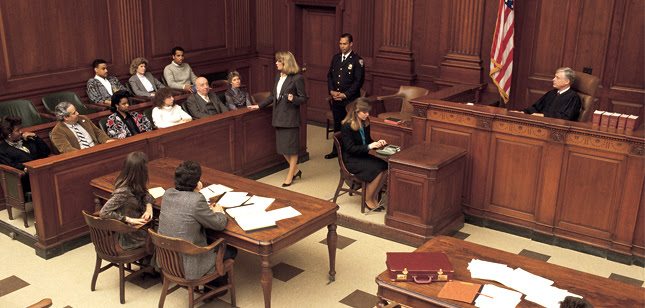Bayview Loan Servicing, LLC, 2018 NY Slip Op 08006, Decided on November 21, 2018, Appellate Division, Second Department:
"In December 2006, the defendants Carol A. Kelly and Thomas E. Kelly (hereinafter together the defendants) executed a note in favor of Tribeca Lending Corporation (hereinafter [*2]Tribeca Lending), as well as a mortgage on certain residential property. In 2011, the plaintiff's predecessor, Wells Fargo Bank, N.A. (hereinafter Wells Fargo) commenced an action to foreclose the mortgage (hereinafter the prior action). Attached to the complaint in the prior action was a copy of the note, which did not contain any endorsements or allonges. Wells Fargo subsequently moved, inter alia, for summary judgment on the complaint, and the defendants opposed the motion, arguing, among other things, that Wells Fargo lacked standing. In an order dated January 17, 2013, the Supreme Court denied Wells Fargo's motion on the ground that Wells Fargo failed to establish its standing. The court also searched the record and awarded the defendants summary judgment dismissing the complaint on the ground that Wells Fargo lacked standing.
By assignment of mortgage dated February 28, 2014, Wells Fargo assigned its purported interest in the mortgage and the underlying debt to the plaintiff. In or about March 2015, the plaintiff commenced this action against the defendants, among others, to foreclose the mortgage. Attached to the complaint in this action was a copy of the note, which contained an endorsement from Wells Fargo to the plaintiff. The next page was an allonge from Tribeca Lending, endorsing the note in blank. In their answer, the defendants raised lack of standing as an affirmative defense. The plaintiff subsequently assigned the mortgage and the note to the nonparty, Kondaur Capital Corporation (hereinafter Kondaur). Kondaur moved, inter alia, for summary judgment on the complaint insofar as asserted against the defendants, to strike their answer and affirmative defenses, and for an order of reference. In an order dated November 15, 2016, the Supreme Court granted Kondaur's motion. Thereafter, upon the order, the court entered an order and judgment of foreclosure and sale dated July 7, 2017, inter alia, in favor of Kondaur and against the defendants, directing the foreclosure sale of the property. The defendants appeal.
Where, as here, standing is put into issue by the defendant, the plaintiff must prove its standing in order to be entitled to relief (see Deutsche Bank Natl. Trust Co. v Brewton, 142 AD3d 683, 684; Deutsche Bank Trust Co. Ams. v Vitellas, 131 AD3d 52, 59; Nationstar Mtge., LLC v Catizone, 127 AD3d 1151, 1152). A plaintiff establishes its standing in a mortgage foreclosure action by demonstrating that it was the holder or assignee of the underlying note at the time the action was commenced (see Aurora Loan Servs., LLC v Taylor, 25 NY3d 355, 361-362; HSBC Bank USA, N.A. v Spitzer, 131 AD3d 1206, 1207).
Here, triable issues of fact exist as to whether the plaintiff was the holder of the note at the time the action was commenced. A "promissory note [is] a negotiable instrument within the meaning of the Uniform Commercial Code" (Mortgage Elec. Registration Sys., Inc. v Coakley, 41 AD3d 674, 674; see UCC 3-104[2][d]; US Bank, N.A. v Zwisler, 147 AD3d 804, 806). A "holder" is "the person in possession of a negotiable instrument that is payable either to bearer or to an identified person that is the person in possession" (UCC 1-201[b][21]; see UCC 3-301). Where an instrument is endorsed in blank, it may be negotiated by delivery (see UCC 3-202[1]; 3-204[2]).
In the present case, there is a triable issue of fact as to whether the note was properly endorsed in blank by an allonge "so firmly affixed thereto as to become a part thereof" when it came into the possession of Wells Fargo, which later endorsed the note to the plaintiff (UCC 3-202[2]; HSBC Bank USA, N. A. v Roumiantseva, 130 AD3d 983, 985). In the prior action, the copy of the note that was attached to the complaint did not contain any endorsements or allonges. The allonge submitted in this action, containing the blank endorsement from Tribeca Lending, was never produced in the prior action, even when the issue of the lack of endorsement of the note was raised by the defendants in the prior action. Further, in the copy of the note produced in this action, the allonge with the blank endorsement from Tribeca Lending appears after the allonge endorsing the note from Wells Fargo to the plaintiff. The allonge also has certain physical attributes inconsistent with the copy of the note to which it was purportedly firmly affixed. Contrary to Kondaur's contention, an affidavit submitted by the plaintiff's vice president, Robert G. Hall, was unavailing, as it only concerned the later endorsement from Wells Fargo to the plaintiff, not the blank endorsement from Tribeca Lending.
Under these circumstances, those branches of Kondaur's motion which were for summary judgment on the complaint insofar as asserted against the defendants, to strike their answer [*3]and affirmative defenses, and for an order of reference should have been denied."








No comments:
Post a Comment
Note: Only a member of this blog may post a comment.